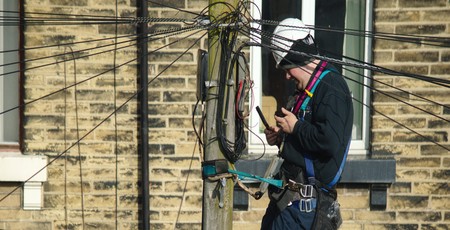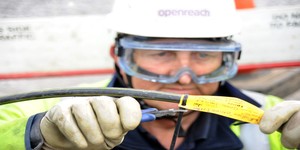CityFibre hits ASA with challenge over 'fake fibre' ads
March 5, 2018 | 11:00
Companies: #advertising-standards-authority #cityfibre

Fibre broadband specialist CityFibre has announced a legal challenge against the Advertising Standards Authority (ASA) in an effort to force advertisers to differentiate between true Fibre to the Premises (FTTP) connectivity and those which rely on copper cabling.
Today, the overwhelming majority of 'fibre' broadband services are not exactly what they seem: Rather than, as the name suggests, using fibre optic cabling for the entirety of the run, most are Fibre to the Cabinet (FTTC) and rely on traditional copper telephone cables or copper co-axial cables for the connectivity to the premises. While companies are increasingly turning to Fibre to the Premises (FTTP), which uses fibre optic cabling for the full run, roll-out is slow - and CityFibre claims consumers are being misled in the meantime.
'The time has come to do away with "fake fibre." The ASA's short-sighted decision to allow yesterday’s copper-based infrastructure to masquerade as the future-proof full fibre networks of tomorrow is a clear failure in its duty,' claims Greg Mesch, CityFibre chief executive. 'It has failed to ensure honest and truthful broadband advertising, it has failed to enable consumers to make informed choices and it has failed to support a national infrastructure project critical to our success in a digital age.
CityFibre's legal challenge calls for a judicial review of a November 2017 decision made by the Advertising Standards Authority to allow FTTC and other part-copper services to advertise as 'fibre broadband' and variations thereon. If successful, only companies offering FTTP services - including, naturally, CityFibre itself - would be allowed to use the terminology.
'UK operators such as CityFibre are busy building the gigabit capable networks that UK consumers and businesses will need for the future, but without clear and transparent advertising to guide their purchasing decisions, millions of consumers risk being conned into staying on inferior copper-based broadband services,' adds Mesch. 'The first step to righting this consumer wrong is for the ASA to reverse its decision, which perpetuates the "fake fibre" lie.'
The Advertising Standards Authority has not yet responded to the company's challenge.

MSI MPG Velox 100R Chassis Review
October 14 2021 | 15:04








Want to comment? Please log in.